

INSECTS
ORTHOPTERA / CRICKETS
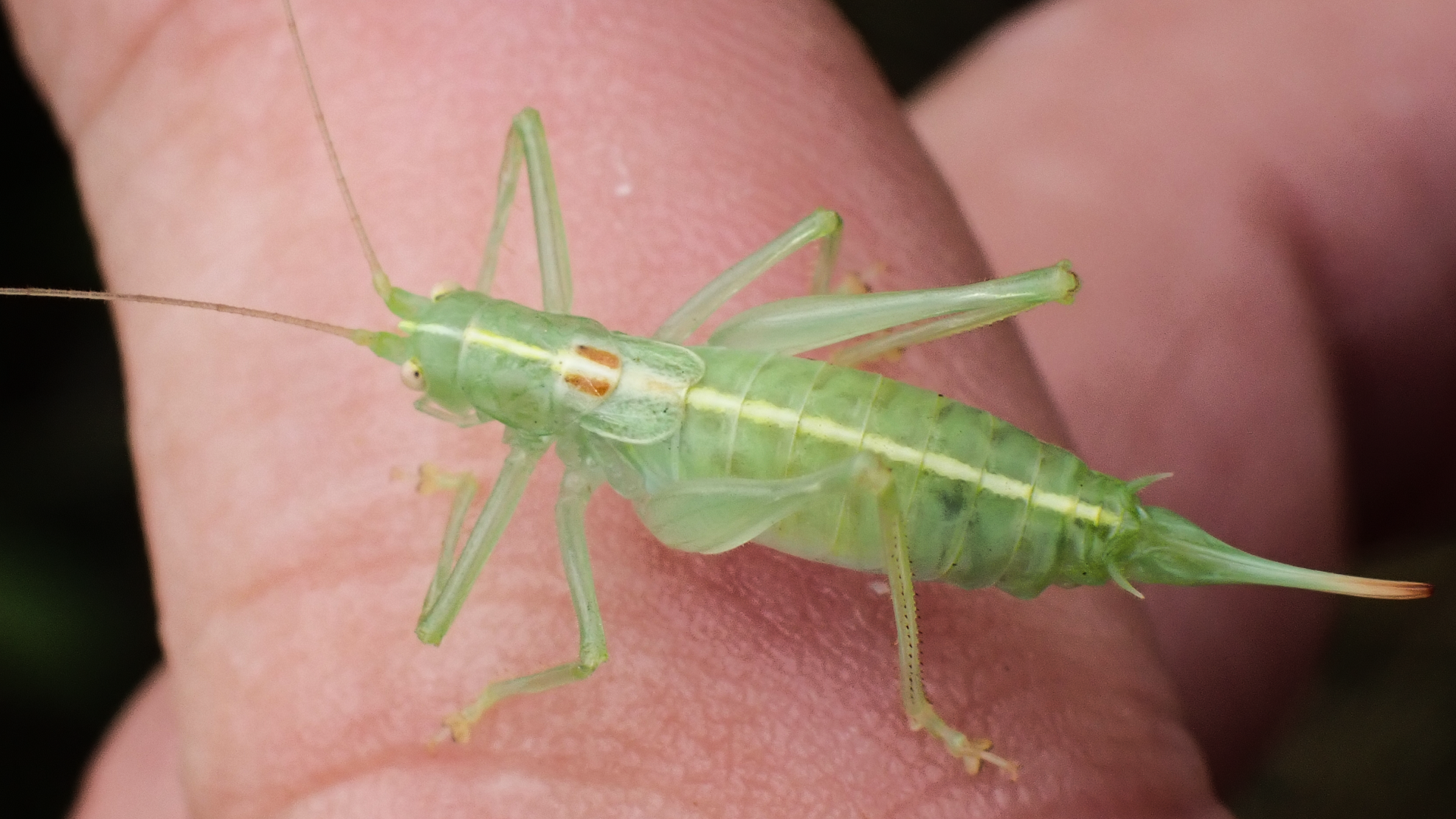
Slide title
Southern Oak Bush-cricket Meconema meridionale
©Raymond Small TQ4792 14/08/2024
Button
Southern Oak Bush-cricket
Meconema meridionale
is a common species (14-17mm long) found in oak woodland, first recorded in Britain in 2001. It is a predator of the Horse Chestnut Leaf Miner moth first recorded in the country a year after. This is a pale green bush-cricket with a pale-yellow dorsal stripe and two reddish-brown spots on top of the pro-thorax. The female has a long, slightly upturned ovipositor. The tiny wing flaps have become functionless in the course of evolution meaning this species cannot fly.
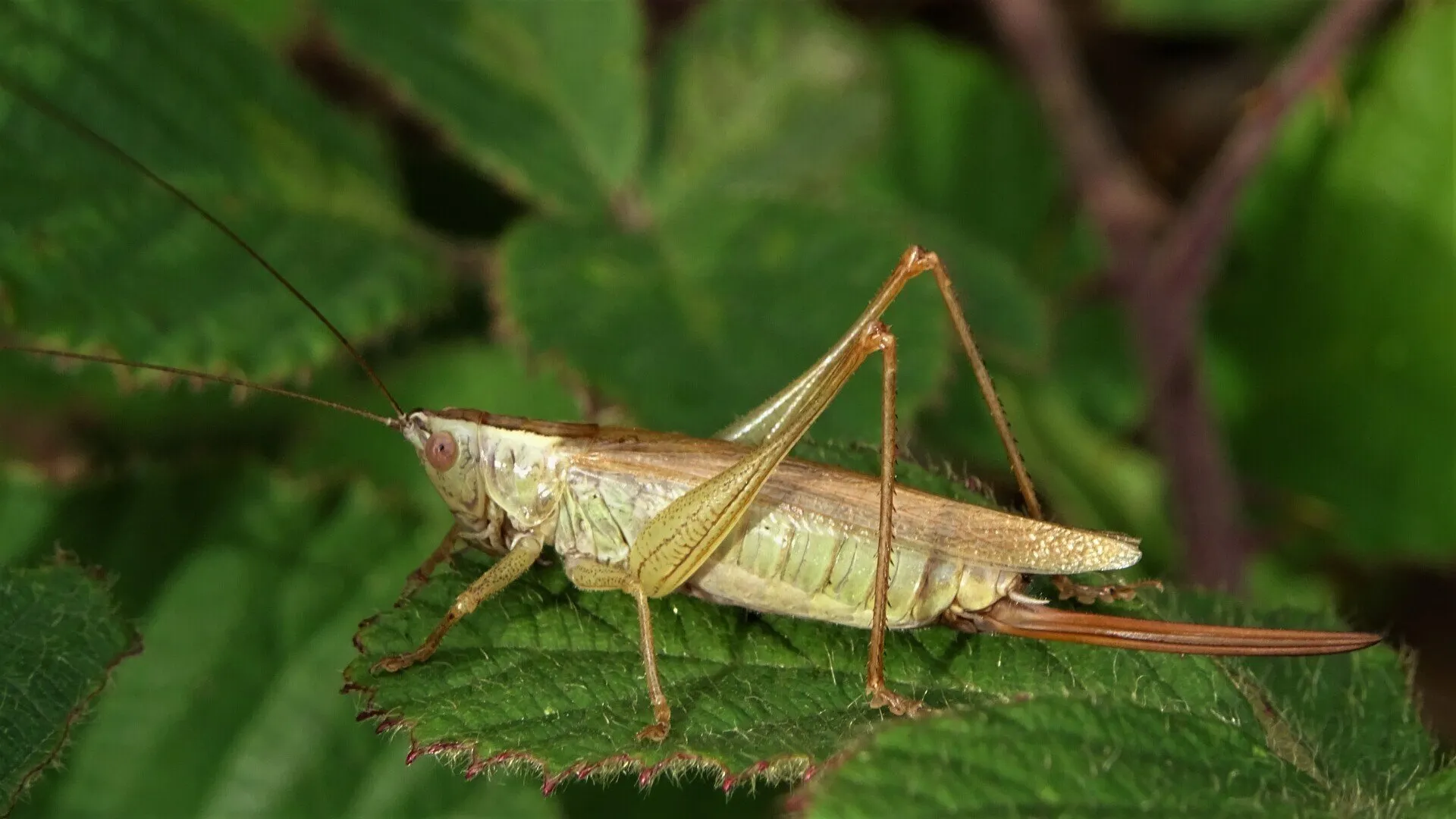
Slide title
Long-winged Conehead Conocephalus fuscus
©Raymond Small TQ4793 17/08/2018
Button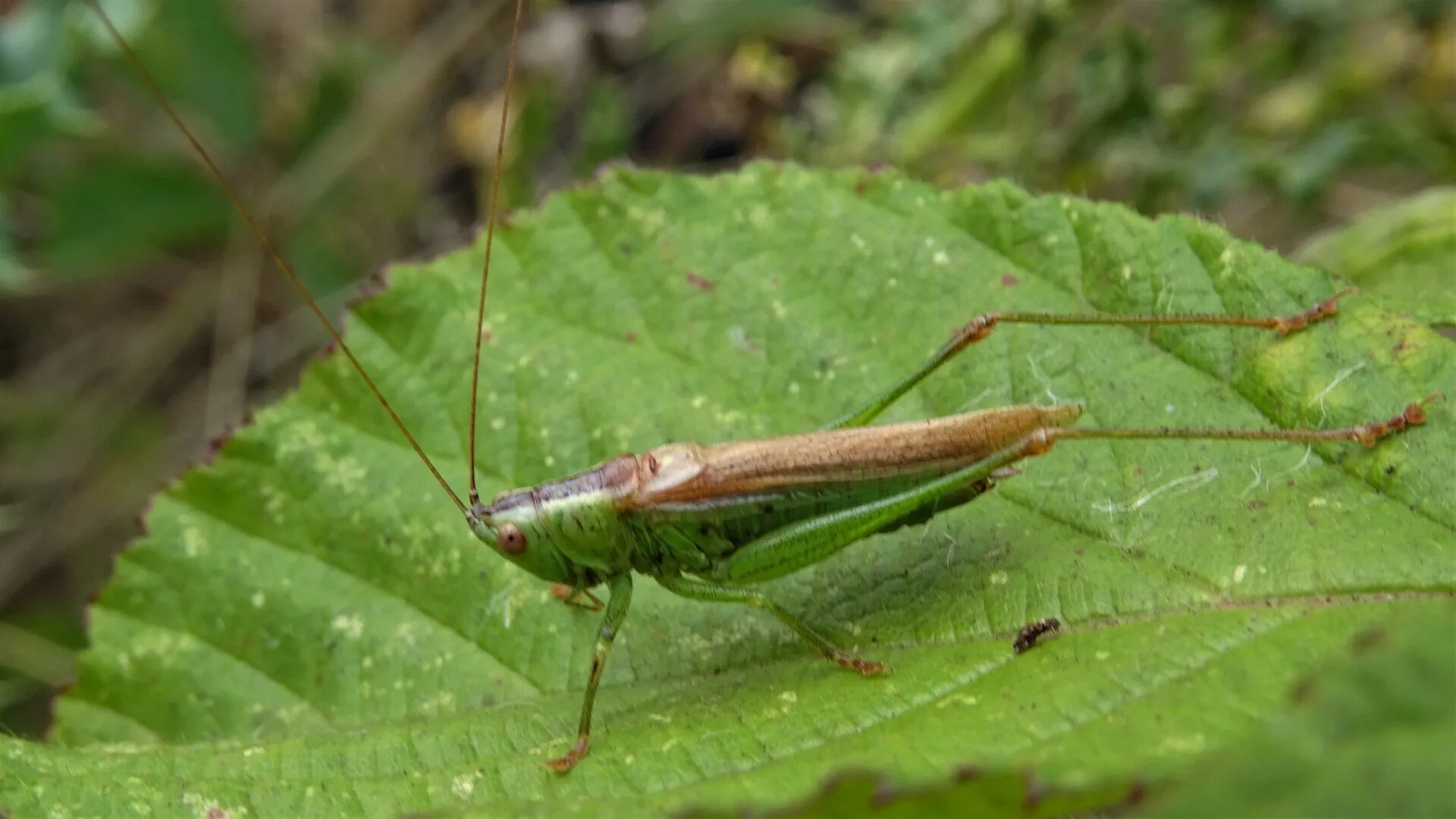
Slide title
Long-winged Conehead Conocephalus fuscus
©Raymond Small TQ4792 17/08/2018
Button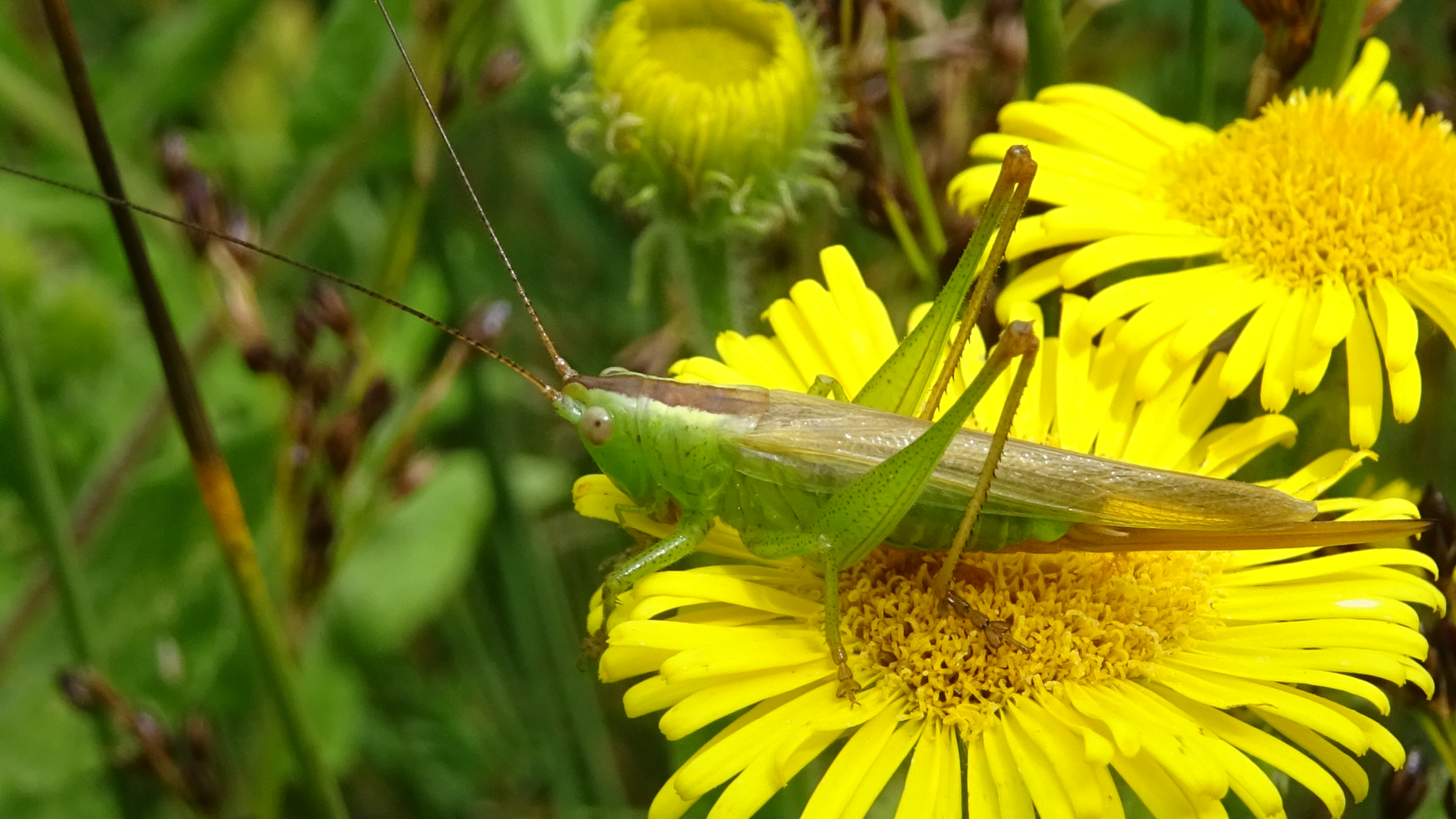
Slide title
Long-winged Conehead Conocephalus fuscus
©Raymond Small TQ4792 03/08/2024
Button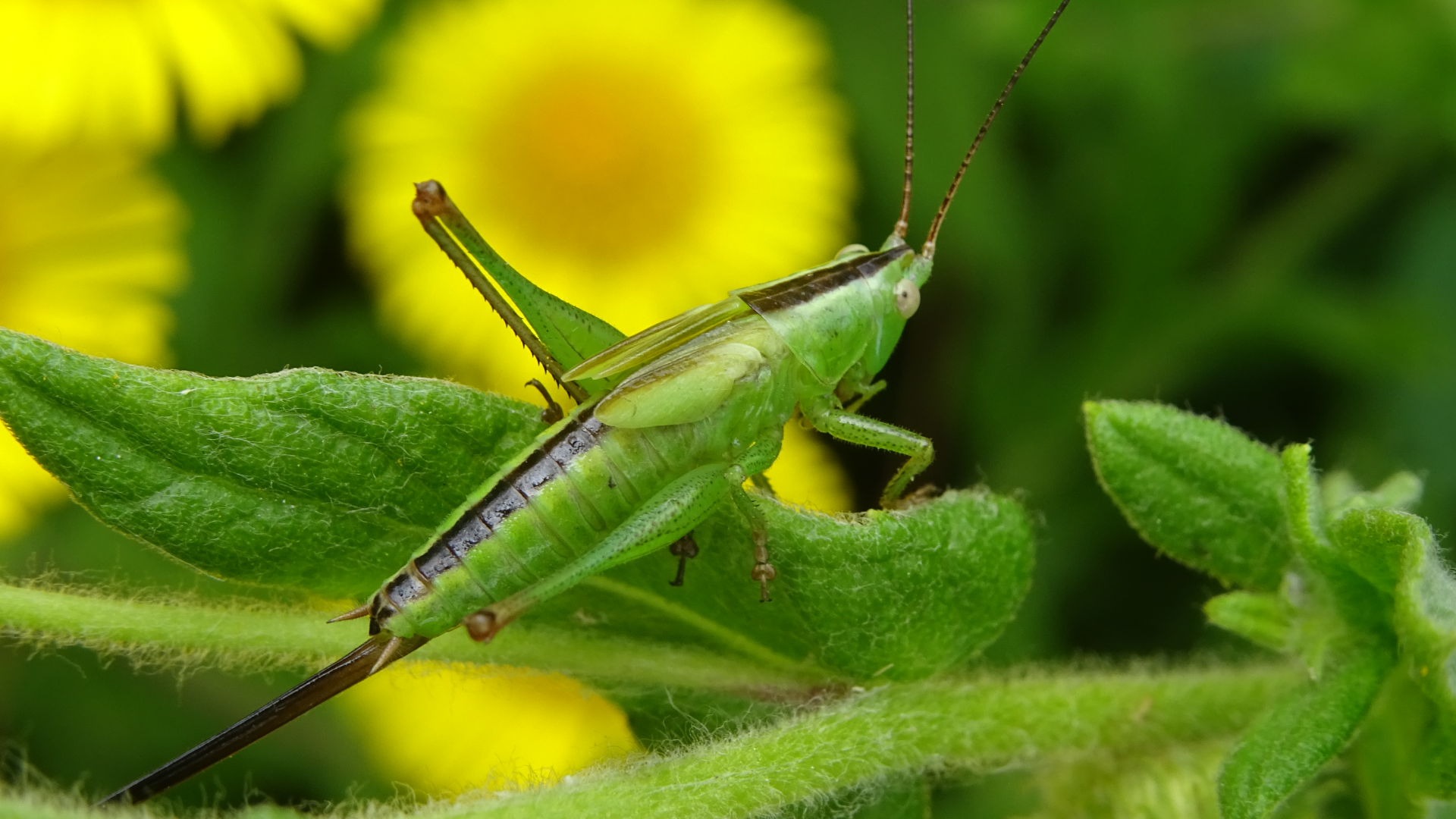
Slide title
Long-winged Conehead Conocephalus fuscus
©Raymond Small TQ4792 03/08/2024
Button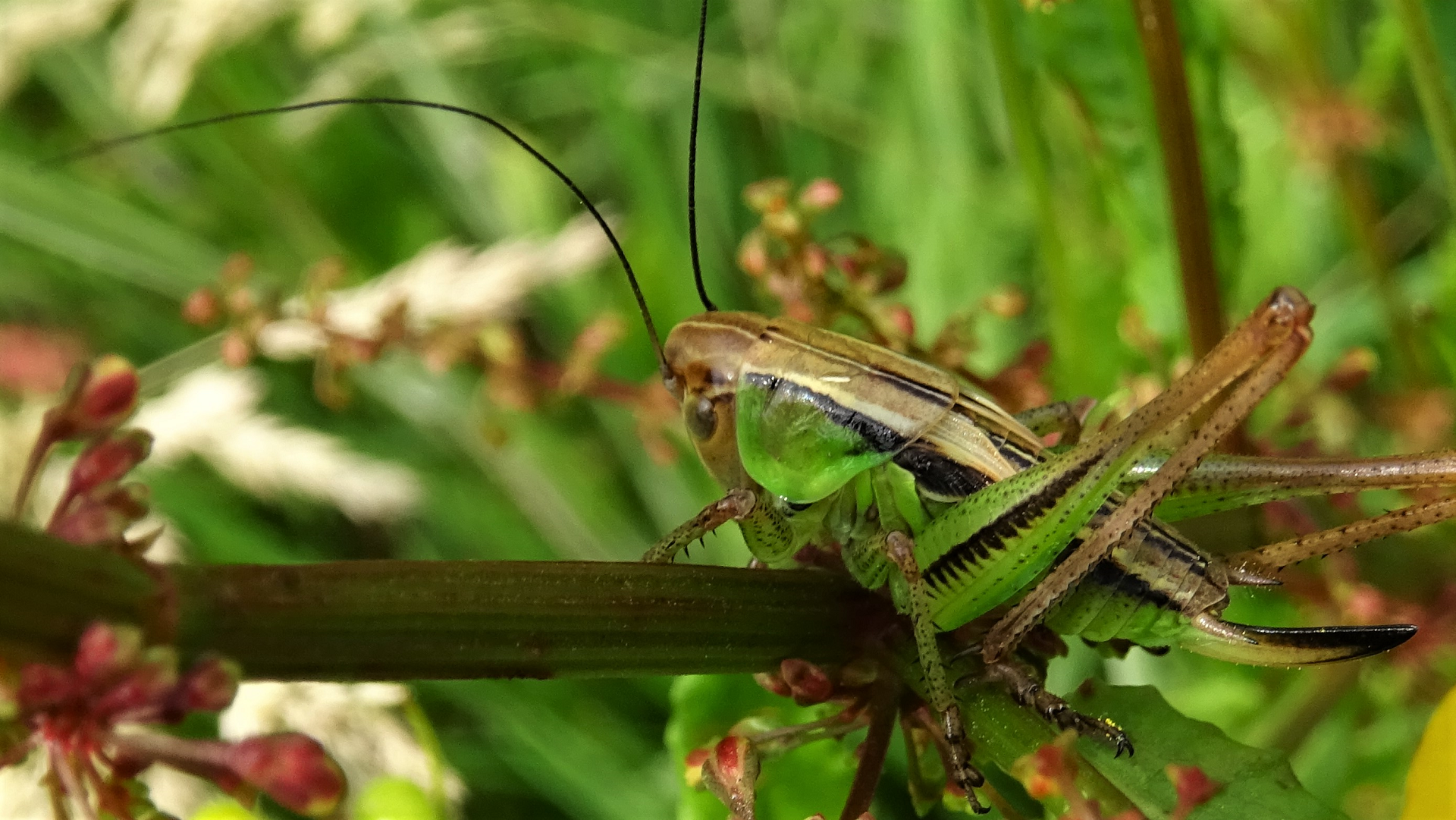
Slide title
Long-winged Conocephalus fuscus
©Raymond Small TQ4792 17/06/2023
Button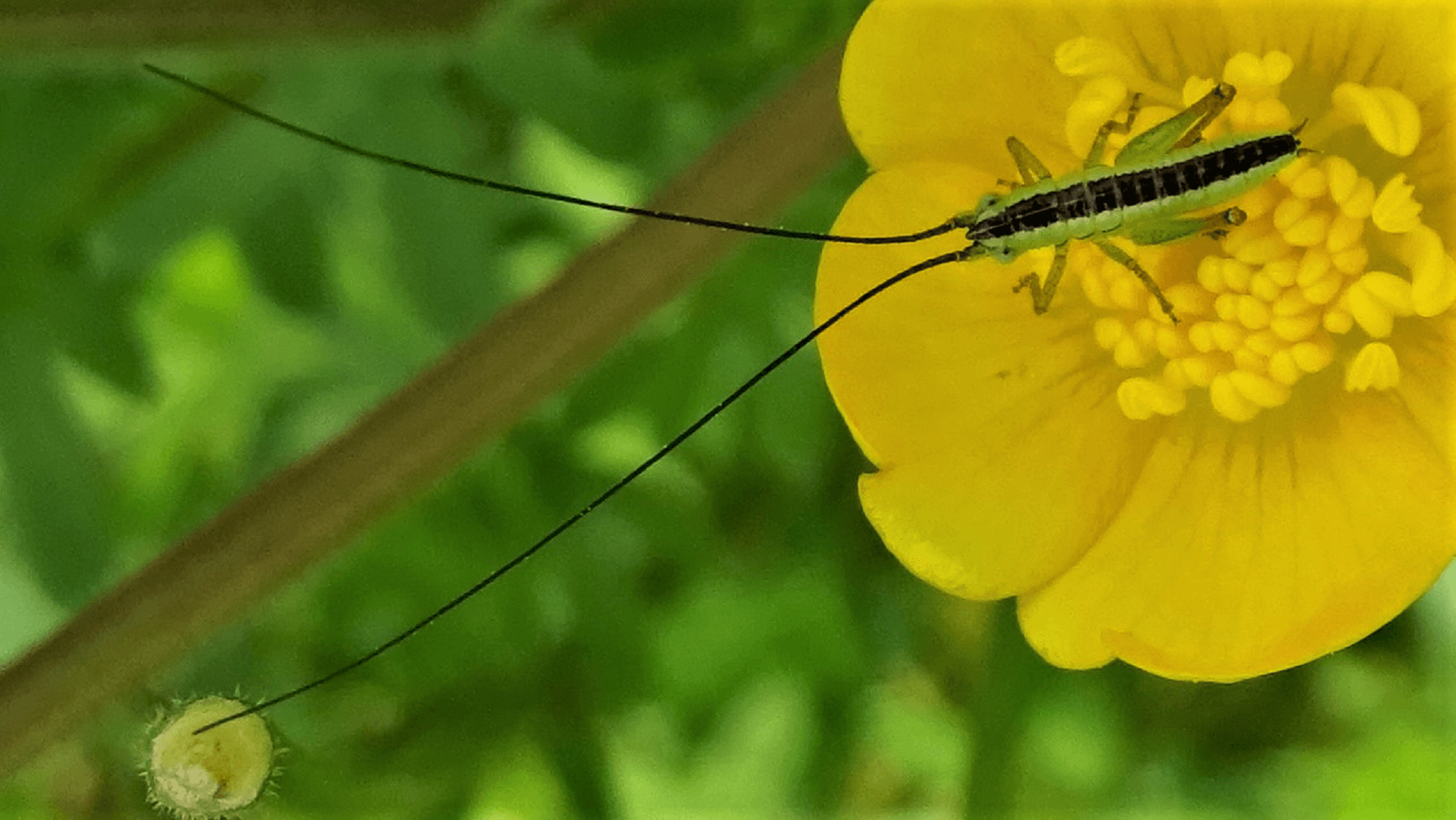
Slide title
Long-winged Conehead Conocephalus fuscus
©Raymond Small TQ4792 28/05/2017
Button
Long-winged Conehead Conocephalus fuscus (20mm long) mainly feeds on grass and sometimes small invertebrates. The common name is derived from the angled shape of the head. Females have a large ovipositor sticking out at the rear that is used to lay eggs. Nymphs have short wings and a black stripe along the back.
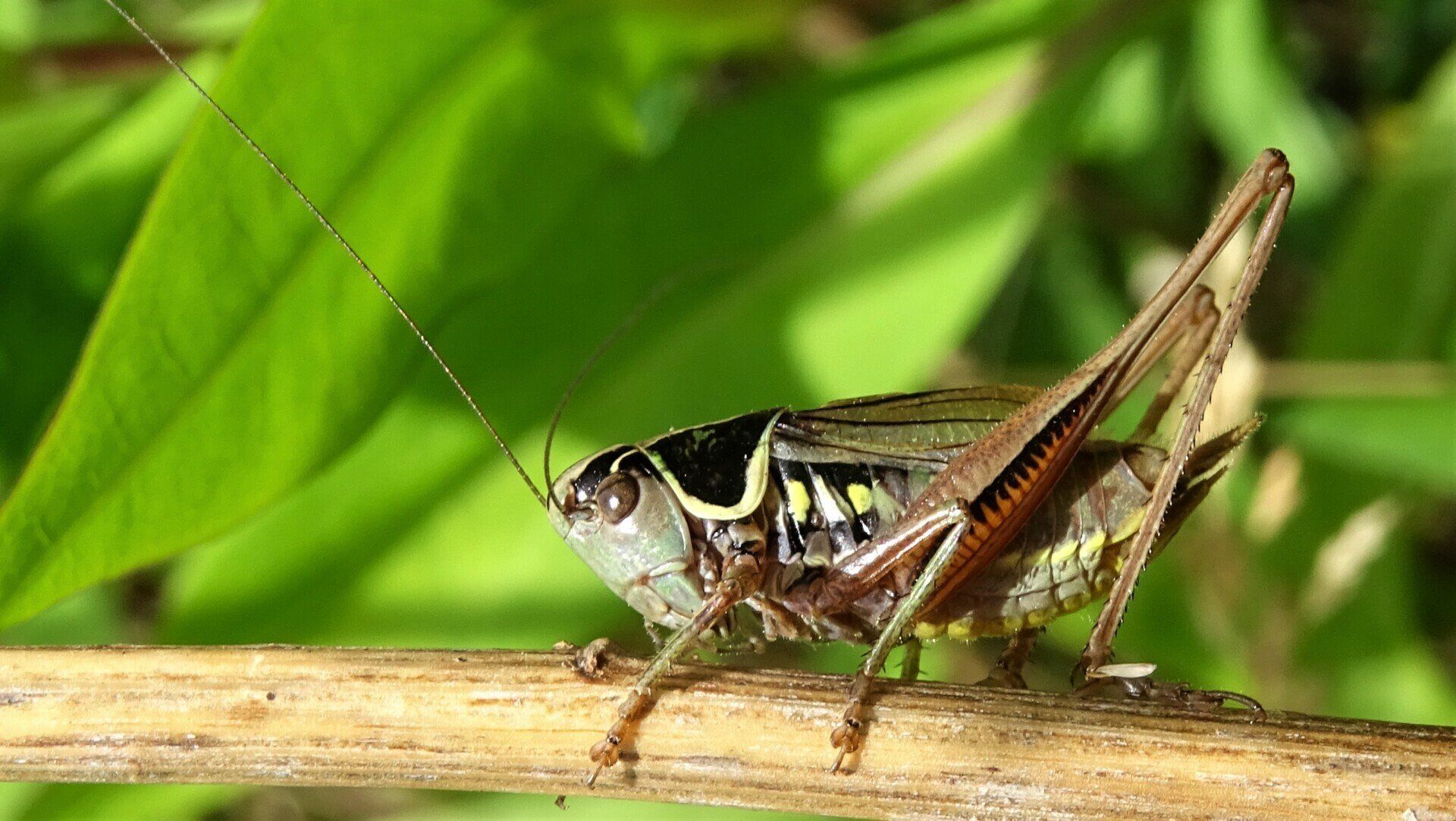
Slide title
Roesel's Bush-cricket Roeseliana roeselii
©Raymond Small TQ4792 02/07/2022
Button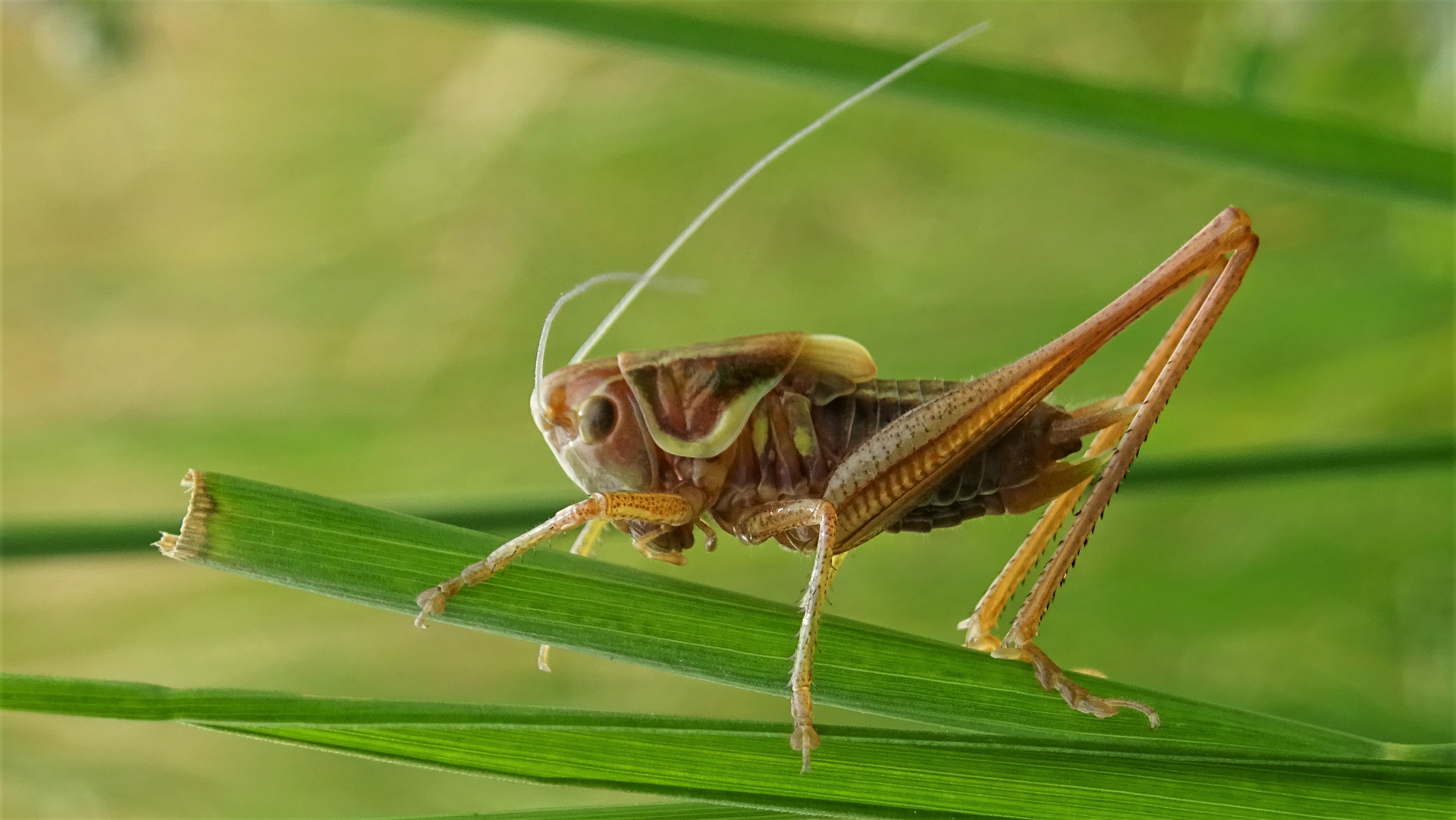
Slide title
Roesel's Bush-cricket Roeseliana roeselii
© Raymond Small TQ4792 23/06/2023
Button
Roesel's Bush-cricket
Roeseliana roeselii
(13-26mm long) is omnivorous, but mainly feeds on grass and other greenery. There are two forms; one short-winged that cannot fly and a less common fully-winged form that can. Found in long grass and scrub, this species usually has a cream-coloured edge to the pronotum and three yellow spots on the thorax. Nymphs appear late May and June and adults in July and August.
© hainaultforest.net. All rights reserved.